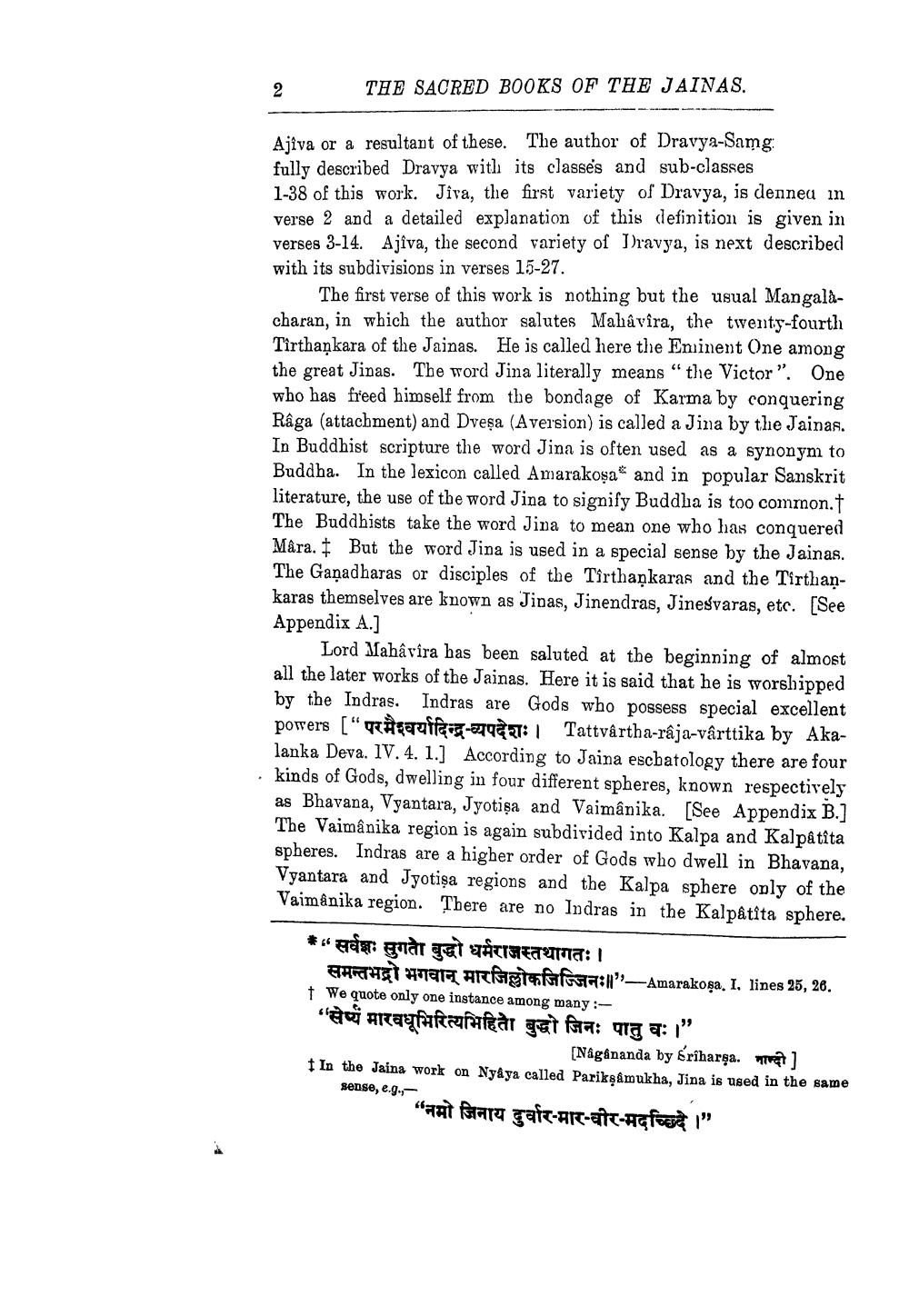________________
THE SACRED BOOKS OF THE JAINAS.
Ajiva or a resultant of these. The author of Dravya-Samg fully described Dravya with its classes and sub-classes 1-38 of this work. Jiva, the first variety of Dravya, is denneu in verse 2 and a detailed explanation of this definition is given in verses 3-14. Ajiva, the second variety of Dravya, is next described with its subdivisions in verses 15-27.
The first verse of this work is nothing but the usual Mangalacharan, in which the author salutes Mahâvîra, the twenty-fourth Tîrthaņkara of the Jainas. He is called here the Eninent One among the great Jinas. The word Jina literally means "the Victor”. One who has freed himself from the bondage of Karma by conquering Râga (attachment) and Dveşa (Aversion) is called a Jina by the Jainas. In Buddhist scripture the word Jina is often used as a synonym to Buddha. In the lexicon called Amarakoşa" and in popular Sanskrit literature, the use of the word Jina to signify Buddha is too common. The Buddhists take the word Jina to mean one who has conquered Mâra. † But the word Jina is used in a special sense by the Jainas.
The Gañadharas or disciples of the Tirthaņkaras and the Tirthan karas themselves are known as Jinas, Jinendras, Jinesvaras, etc. (See Appendix A.]
Lord Mahârîra has been saluted at the beginning of almost all the later works of the Jainas. Here it is said that he is worshipped by the Indras. Indras are Gods who possess special excellent powers ["prigaruffe-927: Tattvârtha-râja-vârttika by Akalanka Deva. IV.4. 1.] According to Jaina eschatology there are four kinds of Gods, dwelling in four different spheres, known respectively as Bhavana, Vyantara, Jyotişa and Vaimânika. [See Appendix B.] The Vaimânika region is again subdivided into Kalpa and Kalpâtîta spheres. Indras are a higher order of Gods who dwell in Bhavana, Vyantara and Jyotişa regions and the Kalpa sphere only of the Vaimânika region. There are no Indras in the Kalpâtita sphere.
*" सर्वज्ञः सुगतो बुद्धो धर्मराजस्तथागतः।
FARTHET HTETET Argieffra:'-Amarakoşa. I, lines 25, 26.
We quote only one instance among many :so Arauffragedi get fara: qa a: 1"
[Någånanda by Sriharşa. ] In the Jaina work on Nykya called Pariksmukha, Jina is used in the same sense, e.g.,
"Tal frara gaft-ar-att-Agreea I"




